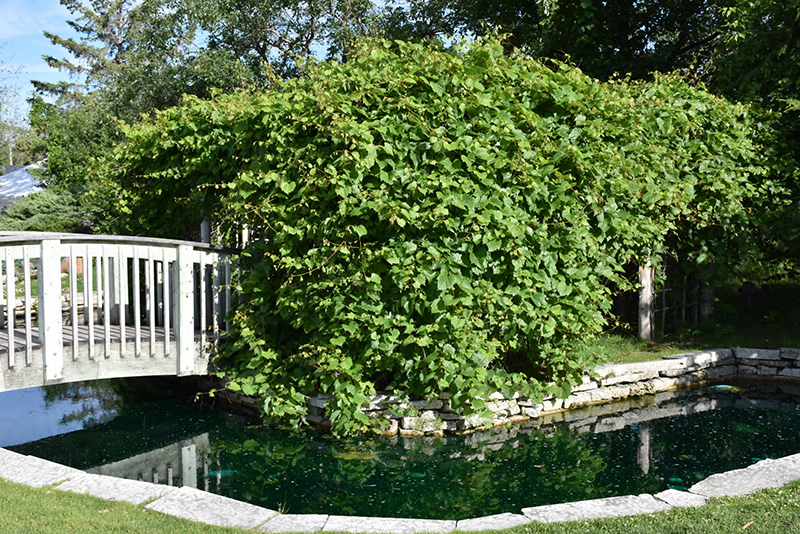Plant Finder
* This is a "special order" plant - contact store for details
Height: 20 feet
Spread: 24 inches
Sunlight:
![]()
Hardiness Zone: 2a
Description:
A tough yet attractive vine, hardy and vigorous to a fault; produces small fruit which though edible are less than palatable; excellent for covering arbors or trellises, trailing walls or fences; needs regular pruning to keep in bounds, full sun
Ornamental Features
Riverbank Grape has rich green deciduous foliage on a plant with a spreading habit of growth. The lobed leaves turn yellow in fall. It produces small clusters of purple grapes with black overtones in early fall.
Landscape Attributes
Riverbank Grape is a dense multi-stemmed deciduous woody vine with a twining and trailing habit of growth. Its relatively coarse texture can be used to stand it apart from other landscape plants with finer foliage.
This is a high maintenance woody vine that will require regular care and upkeep, and can be pruned at anytime. It is a good choice for attracting birds to your yard. Gardeners should be aware of the following characteristic(s) that may warrant special consideration;
- Spreading
Riverbank Grape is recommended for the following landscape applications;
- Mass Planting
- Hedges/Screening
Planting & Growing
Riverbank Grape will grow to be about 20 feet tall at maturity, with a spread of 24 inches. As a climbing vine, it tends to be leggy near the base and should be underplanted with low-growing facer plants. It should be planted near a fence, trellis or other landscape structure where it can be trained to grow upwards on it, or allowed to trail off a retaining wall or slope. It grows at a fast rate, and under ideal conditions can be expected to live for approximately 20 years.
This woody vine should only be grown in full sunlight. It prefers to grow in average to moist conditions, and shouldn't be allowed to dry out. It is not particular as to soil type or pH. It is somewhat tolerant of urban pollution. Consider applying a thick mulch around the root zone in winter to protect it in exposed locations or colder microclimates. This species is native to parts of North America.
* This is a "special order" plant - contact store for details
